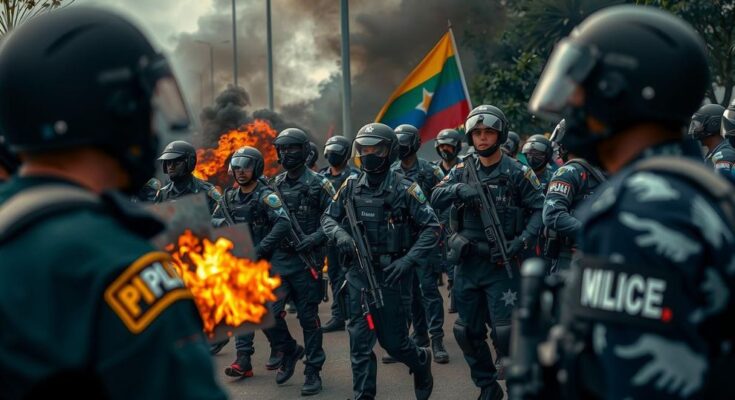Mozambique is experiencing political turmoil following the recent presidential elections. Protests arose after Frelimo was declared the victor, leading to violent clashes with police that resulted in the deaths of at least 40 individuals, including children. The protests were sparked by allegations of election fraud, with many citizens rejecting Frelimo’s continued rule. These events reveal a broader youth discontent vis-à-vis political representation and demand for systemic change.
The political tension in Mozambique escalated after the recent presidential elections, which resulted in the ruling party, Frelimo, being accused of committing severe human rights violations against protesters. The tragic shooting of a teenager named Antonio Juaqim, during an opposition-led protest outside the home, highlighted the ongoing crisis in the nation. This violent incident, among others, has led to widespread mourning and protests, primarily against the election results which many citizens consider fraudulent. Amid ongoing demonstrations and calls for justice, the police have been criticized for their excessive use of force, with numerous casualties reported, including young children.
The protests originated from dissatisfaction with the electoral process, where Frelimo was declared the victor with 71% of the vote, a figure vehemently challenged by the opposition. Despite the police’s claims of self-defense during violent protests, international human rights organizations have expressed grave concerns over the patterns of violence and the impact on the youth. Casualties have included not only Antonio but also others like Alito Momad, futher emphasizing the grim reality of the protests and their implications for Mozambique’s future.
Mozambique has been under Frelimo’s rule since gaining independence 49 years ago, making its recent elections transformative in assessing political stability. Following the electoral declaration on October 24, widespread allegations of fraud and electoral malpractice emerged, primarily from opposition candidate Venâncio Mondlane, who urged citizens to protest through rhythmic banging of pots and pans as a form of civil disobedience. This method quickly escalated to larger protests, reflecting a significant discontent among younger voters in particular. The political processes since independence, including the shift toward multi-party democracy, have rendered the current state of affairs particularly precarious as violence erupts at the intersections of political dissent and law enforcement actions.
The crisis in Mozambique epitomizes the deepening political and social divides exacerbated by allegations of electoral fraud and police violence against protesters. The atrocities resulting in the deaths of young individuals signify a critical juncture for the nation, challenging both its political system and societal norms. As citizens demand accountability and meaningful change amidst escalating tensions, the implications for the future of democracy and human rights in Mozambique remain uncertain and urgent.
Original Source: www.bbc.com




